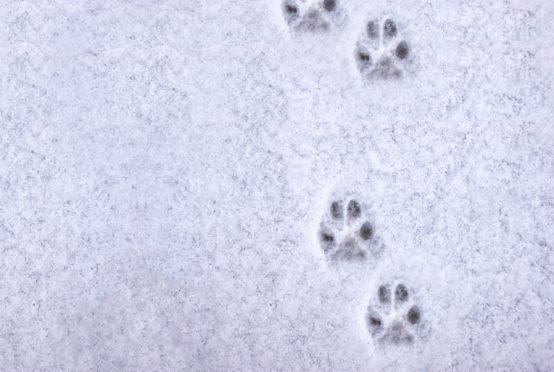A new year and a fresh lockdown to start it off.
I hear Tarka, my little Border terrier, sigh next to me.
We’ll get through it with the same determination and optimism as we have so far, I tell her gently.
Granted it’s not been the best of beginnings to 2021, but the vaccines offer hope on the horizon.
It’s also February, a month for spreading love. And this month, more than any time I can remember, that message of love and kindness would be a healing balm for Covid-weary souls.
For animal owners, the good news has been that as before, veterinary practices across Scotland have been able to remain open to help their farm, horse and small animal clients. They can only offer essential treatments, of course, but it’s not been a return to the emergency-only appointments we saw at the start of the lockdown last March. So if you have concerns about your animals’ health, don’t hesitate to pick up the phone and call your vet for advice.
I’ve heard many people ask why vets aren’t being called on to help with the Covid vaccination taskforce.
Vets obviously have the skills to administer vaccines but, while some of my colleagues have volunteered via the St John Ambulance in their individual capacity, the profession hasn’t had an official call from the government on vaccinations.
This is likely because it recognises the current pressures on the UK veterinary workforce, who have been working hard to maintain animal health and welfare (take the bird flu outbreak, for example) as well as food safety and food chain continuity in the face of Covid-19.
Alongside this has been the increased post-Brexit work pressure on the profession when it comes to veterinary surgeons certifying food and products of animal origin for export to the EU.
We are back to juggling devices in our household to allow for home-learning. It’s been a particularly tough time for school students. It’s especially pertinent in my home, where both my sons are making decisions on subject choices.
It’s not easy working out what career options they might wish to follow and making relevant decisions at the best of times. My eldest is going into fifth year and is considering applying to study medicine, while my youngest is keeping his options open by choosing a broad range of subjects as he doesn’t know what he wants to do when he leaves school.
For senior school students thinking about a veterinary career, I’d like to give a shout-out to widening access programmes such as Reach, which is a huge help in guiding them through vet career pathways, the application process, interview preparation and more.
Both Glasgow and Edinburgh universities are enrolled in the programme and can provide advice to school students considering veterinary medicine as a career. If you are thinking about getting into this field, the British Veterinary Association also has a great careers hub (myvetfuture.co.uk), with advice on how to apply for vet school and where different veterinary careers could take you.
It has been tough on young people at university and college where normal student traditions are not happening and learning is also being done remotely.
I know vet students are facing difficulties with access to live practical classes and worrying about getting all the required practical experience they need to graduate.
As I mentioned at the start, this is the month of showing and spreading love. What do I mean by showing some love to your veterinary team? Nothing cheesy, I promise: Just a simple show of thanks from you (or your pet), that’s all.
I can tell you from personal experience that every “thank you” message or hand-drawn card from clients can bring a smile to your vet or vet nurse’s face and a spring to their step. Many of us keep these notes or cards – displayed on our practice walls or filed away in memory boxes – as reminders of why we entered this profession.
So if you see your vet or vet nurse this month, why not acknowledge their hard work and dedication at this difficult time?
Kathleen Robertson is Scottish president of the British Veterinary Association
